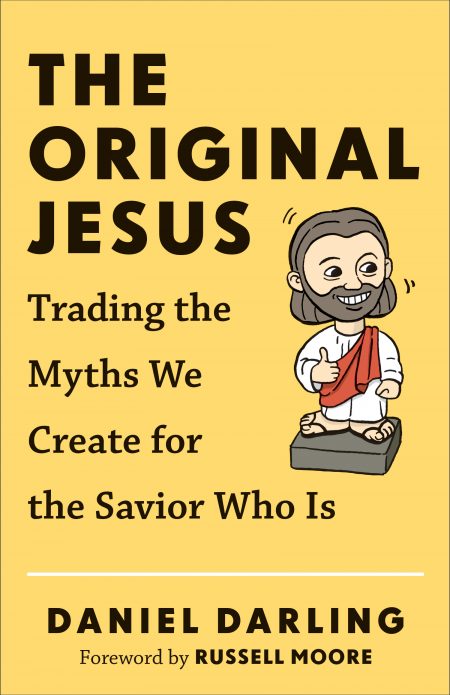As we begin our three week series on Sunday, Why Jesus?, I am reflecting upon the myriad of ways humanity answers the question. Sometimes our view of Jesus emerges from ignorance. It may also grow out of fear or confusion. Increasingly, our culture answers the question with a bit of “Christophobia,” an embarrassment at our Christian past and desire to exclude Jesus from our future (as Joseph Weiler coined the term in his book A Christian Europe: An Exploratory Essay). And there are of course the many ways that we Christians also think erroneously of Jesus.
As God’s providence would have it, I was preparing for Sunday’s message when I received a copy of my friend Dan Darling’s new book, The Original Jesus: Trading the Myths We Create for the Savior Who Is. After thumbing through some pages, I decided I liked it and asked Dan to answer the following questions, which he has kindly done:
What prompted you to write this book?
I’ve seen in my own heart a tendency to want to create a Jesus who looks and talks a lot like me. This seems to be a trend in American life, where Jesus is popular as long as he’s a mascot for our preferences or ideologies. But I’m struck by the fact that Scripture doesn’t present Jesus as the sum total of our beliefs, but as the Christ of history, the Great I Am. It is we who must bow before him and be molded in HIs image and not Jesus who must conform to ours.
Why is it that we seem to want to create a Jesus who looks like us?
I think we instinctively want God’s blessing on our lives–but we want it on our terms. At the end of the day, in our fallen state, we are tempted toward self-worship. We create gods of ourselves. So even in our Christianity, we can tend to create a Jesus who looks a lot like the man in the mirror.
What is the risk of creating a counterfeit Jesus?
We either worship a false Jesus and miss the real Jesus entirely or we rely on our truncated, limited vision of Jesus instead of bowing before the infinitely awesome, wonderful Son of God who came to save us from ourselves. What I’m trying to communicate in this book as that the Jesus’ we chase are always inferior than the real Jesus. When we come to Jesus on our terms, we’re always disappointed. But when we surrender to him, even though we may endure hardship or suffering in this life, we’ll always find more lasting joy and peace. The Jesus who is is way better than the Jesus we create.
The first chapter of the book addresses those who might approach Jesus as a nice teacher, but not the Son of God. You challenge people who hold to this view. Why?
This was born out of my interactions with good friends from either other religions or who might like Jesus but not accept that He was the Son of God and the Savior of the world. What I do is invite them to examine the beautiful story of Christianity. My contention is that the gospel story is so unique, so compelling that even if you don’t believe it, you will come away wishing it was true. No other story or religion answers the deepest problems of the human experience, the problems with the cosmos, and the hopes for the future like the story the Bible tells.





